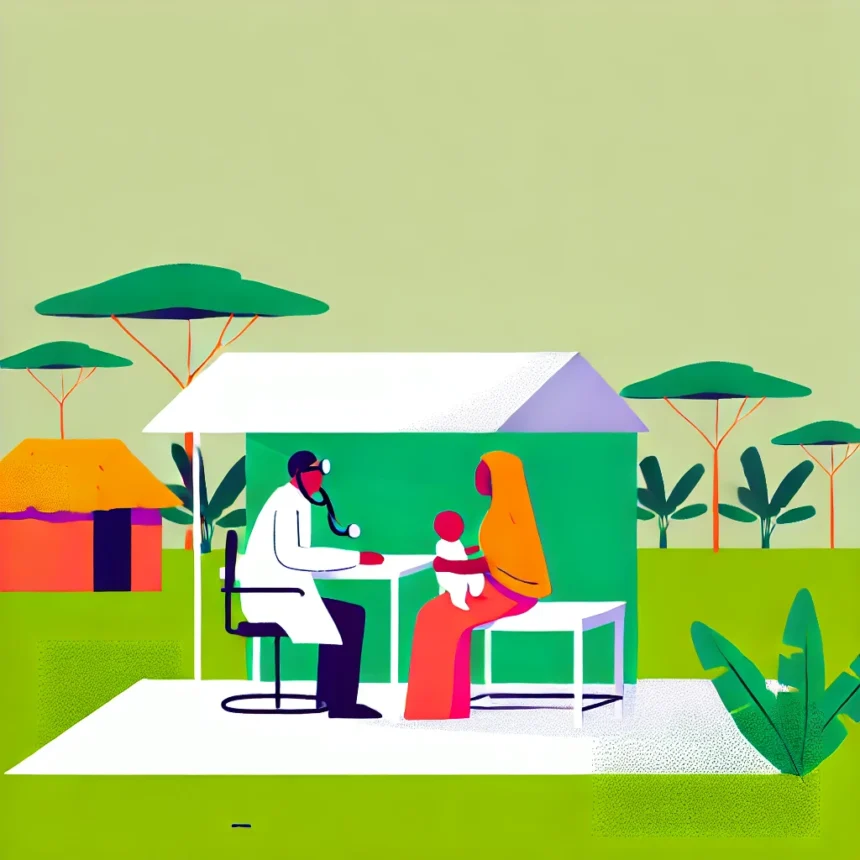Child mortality is a major public health issue in Nigeria, with thousands of children dying before the age of five each year. This problem is caused by preventable and treatable illnesses and is symptomatic of larger systemic flaws in healthcare, infrastructure, and socioeconomic policies. Here are the reasons, preventive methods, and therapeutic techniques for lowering child mortality.
Major causes of child mortality in Nigeria:
- Malnutrition is a substantial contributor, accounting for around 45% of fatalities among children under the age of five. Many children suffer from stunted growth, wasting, or micronutrient deficiencies as a result of inadequate food intake and poor dietary practices, which are exacerbated by food insecurity, poverty, and a lack of maternal education on proper infant feeding practices, such as exclusive breastfeeding for the first six months.
- Preventable infections like malaria, diarrhea, pneumonia, and measles are the primary causes of death among children. These infections are common because to limited access to immunization programs, safe drinking water, improved sanitation, and timely medical interventions such as antimalarial treatment and oral rehydration therapy.
- Weak healthcare infrastructure exacerbates the situation, as many communities, particularly in rural regions, lack operational healthcare facilities, skilled health workers, and needed medications. Furthermore, in many areas, inadequate emergency response systems prevent access to critical care services.
- Socioeconomic and environmental factors are also important, with children from low-income families being disproportionately affected. Overcrowding, poor housing, and exposure to hazardous environmental conditions, such as tainted water, all enhance vulnerability. Regional conflicts that uproot families also impair access to key health care, which raises child death rates.
MUST READ;Family Planning, Your Health and Nutrition: Lessons from FP2030
Preventive Measures:
- Improving nutrition through breastfeeding initiatives, which promote exclusive breastfeeding for the first six months and supplemental feeding thereafter, can considerably reduce child mortality. Nutritional supplements such as fortified foods and vitamins address deficiencies, whereas community feeding programs target vulnerable populations in food-insecure areas to enhance child nutrition and growth results.
- Expanding immunization coverage against avoidable diseases such as measles, diphtheria, and polio is critical. Routine vaccine availability, participation-promoting awareness campaigns, and mobile clinics in hard-to-reach places can all help to address these issues.
- Improving water, sanitation, and hygiene (WASH) services is essential. This includes providing clean drinking water, teaching populations on proper handwashing and hygiene practices, and constructing safe sanitation facilities to decrease exposure to waterborne diseases.
- Strengthening primary healthcare by creating well-equipped clinics, training community health workers, and encouraging poor people to use health services through subsidies and insurance systems can all help to enhance access to care.
Treatment Strategies:
- The Integrated Management of children Illness (IMCI) strategy emphasizes the comprehensive treatment of common children’s illnesses. This includes giving inexpensive access to antibiotics for pneumonia, antimalarial medications, and oral rehydration salts for diarrhea, as well as improving diagnostic capacities in rural health institutions.
- Treating malnutrition with Ready-to Therapeutic foods (RUTF) and hospital-based treatment can save lives in cases of problems such as severe dehydration or infections. Educating caregivers about good eating practices ensures long-term rehabilitation.
- Emergency response systems must be strengthened by establishing rapid-reaction units to deal with disease outbreaks or health crises, particularly in conflict-affected regions. It is critical to ensure the availability of important medicines and healthcare staff during times of emergency.
In conclusion, despite significant advances, Nigeria still confronts issues such as limited healthcare financing, poor inter-agency cooperation, and reliance on foreign aid for critical medical supplies. The government must improve healthcare financing, assist local pharmaceutical manufacture to lessen reliance on imports, and encourage public-private partnerships to scale new solutions.


